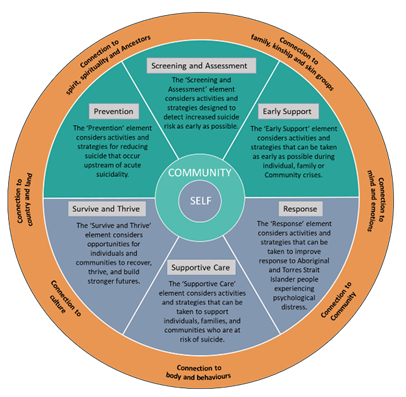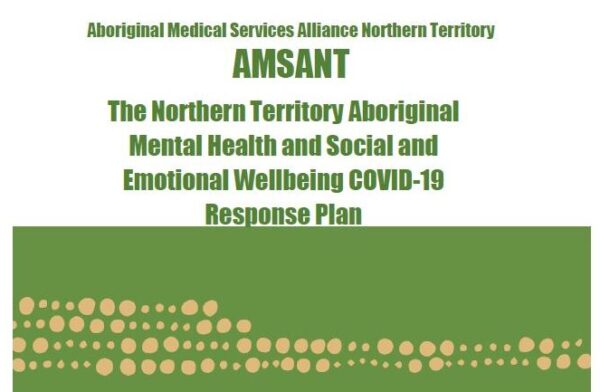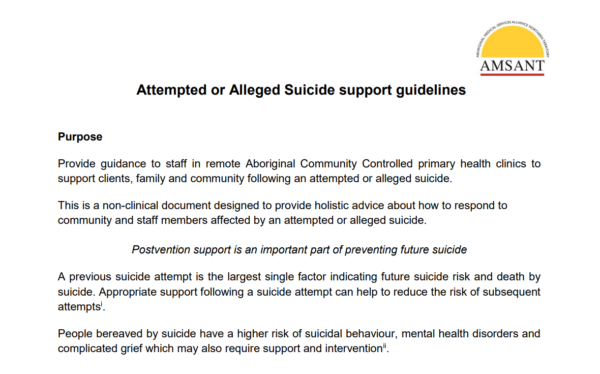Policy and Research
The CRTIC Evaluation works in partnership with Central Australian Aboriginal Congress to investigate how to embed culturally responsive trauma-informed care into all levels of the organisation.
The research approach embeds an appreciation of the historical and systemic influences that manifest in intergenerational trauma and poor physical, social and emotional wellbeing outcomes for Aboriginal people and communities.
The project seeks to learn from the wisdom, values, lore, language and practices that maintained the health and wellbeing of Aboriginal people for thousands of years. We seek to change the systems, policies, practices and mindsets that reproduce and reinforce trauma as a pervasive element of Aboriginal life.
Culture Care Connect is a program funded by the Australian Government Department of Health and coordinated nationally by NACCHO until mid-2025, underpinned by Aboriginal leadership and control.
The program combines three key streams of funding for:
- Regional community-controlled suicide prevention networks.
- Culturally safe aftercare services for Aboriginal people following a suicide attempt or suicidal crisis.
- Aboriginal and Torres Strait Islander Mental Health First Aid Training (ATSIMHFAT).
NACCHO has developed a model of care to guide implementation and delivery of Culture Care Connect that is consistent with Aboriginal ways of knowing, being, and doing. SEWB is embedded in the model.

The SEWB Policy team participates in key planning forums and collaborates with a range of peak bodies, research institutes, government departments, commissioning agencies and service organisations. We aim to improve relationships and increase integrated ways of working, both in the service system and the wider community.
The SEWB policy agenda reflects a holistic approach that addresses the underlying determinants of wellbeing. We advocate for equitable access to SEWB, mental health and suicide prevention supports throughout the NT, action to strengthen the capacity and sustainability of our workforce, and needs-based approaches to funding.
Our policy and research initiatives gather evidence to promote community controlled health services and are always guided by the needs of the workers and clients of Aboriginal health services.
The LEARNT project (LEarning from Alcohol (Policy) Reforms in the NT) is a study examining the impact of the reintroduction of the Banned Drinker Register (BDR) alongside the wider framework of alcohol control measures in operation in the Northern Territory.
AMSANT is a partner-investigator alongside Menzies School of Health research, and our SEWB team are leading the development and implementation of a qualitative component of the study in the Top End. The aim of this research is to understand the lived experience of people who are on the BDR, as well as the impact of the BDR on the families and social networks of people on the register.






